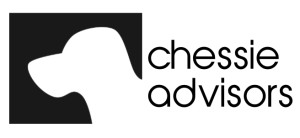Health Savings Accounts (HSAs): Roth IRAs on Steroids
Imagine a savings account that allows you to save pre-tax money (like a Traditional IRA, 401(k), or 403(b) plan), allows that money to grow tax-deferred (like all types of IRAs, 401(k)s, and 403(b) plans), and then allows that money to be withdrawn tax-free (like a Roth IRA).
It’s a tax savings trifecta!
It’s a Roth IRA on steroids, but in a legal way (not in an A-Rod sort of way).
This type of account would seemingly only exist in a fairytale, right there alongside that mythical investment that could get you 20% returns without ever losing money, and a Yeti, otherwise known as the Abominable Snowman.
I can’t say that I know how to locate a Yeti, unless you’re talking about those white high-priced performance coolers found at your local sporting goods store, and that mythical investment with no downside remains elusive, but today I’m going to introduce you to that magical account that many people are still unaware exists.
So, what is this incredible savings vehicle?
It’s called a Health Savings Account or HSA.
These accounts are nothing new, they were signed into law in 2003 and became available in 2004. However, until the past few years, these accounts really hadn’t gained widespread traction due to the requirement that they be accompanied by a High Deductible Healthcare Plan (HDHP). This is probably the biggest downside to this type of account. For 2019, High Deductible Healthcare Plans are defined as those with deductibles exceeding $1,350 for individuals and $2,700 for families (these limits rise to $1,400 for individuals and $2,800 for families for 2020).
With changes to the health insurance industry ushered in by the Affordable Care Act of 2010, the landscape for employer sponsored health insurance (where about ½ of Americans get their coverage) has shifted toward HDHPs for their employees. Many companies have eliminated HMO and PPO plans for their employees in favor of the lower cost HDHPs. This trend is likely to continue with excise taxes on high-end health care plans coming in 2022.
So, what is a Health Savings Account, and how does it benefit me?
An HSA is an account designed to contribute and grow money that can be used to pay healthcare expenses.
For 2019, the HSA allows a maximum contribution from all sources up to $7,000 for a family ($3,500 for an individual – increases to $3,550 for 2020, family limit for 2020 increases to $7,100) with an additional $1,000 allowable catch-up contribution for those over the age of 55. Some employers even help fund the HSA on behalf of an employee, kicking in $1,000 or more, which also goes toward the maximum contribution limits.
You also have the ability to make a once-in-a-lifetime rollover from an IRA to help fund your HSA. However, that rollover is limited to the maximum contribution for the HSA that year minus any contributions made by you or your employer.
Any money withdrawn from the HSA for medical expenses, at any time, is tax-free. Otherwise there is tax on distributions not used for medical expenses and an additional 20% penalty. Once you’re age 65, the 20% penalty is waived and when you take withdrawals for non-medical expenses, you simply owe tax on the money, like you would on a distribution from a Traditional IRA, 401(k) or 403(b).
I’ve got a Healthcare Flexible Spending Account, how is an HSA different?
HSAs differ from a Healthcare Flexible Spending Account in two primary ways:
- If you leave your employer, you can keep your HSA. You own it. It doesn’t just get forfeited like the Healthcare FSA.
- Money within the HSA not used throughout the year carries over to the next year, allowing you to fund and grow the HSA for current or future medical expenses.
How can I get a Health Savings Account?
Typically the Health Savings Account is elected during Open Enrollment (read our post 4 Ways to Conquer Open Enrollment) along with choosing a corresponding HDHP. You also elect the level of contributions you would like to have come out of your paycheck throughout the following year to fund the HSA. In some cases, you may have the ability to raise or lower your contributions into the HSA during the year. Check with your employer or HSA provider for information on this.
What are the real benefits of a Health Savings Account?
Well, the real benefit of the HSA is the tax-deferred growth and tax-free withdrawals. You have the ability to contribute every year to the account, but by using it sparingly, it will have the most long-term growth potential. Think of it as another one of your retirement accounts, but one with triple tax savings. Healthcare expenses aren’t going away in the future, they’re only likely to increase.
If you’re great at keeping records, you could save your medical expense receipts, let your money grow for a number of years, and then withdraw for the expenses you’ve already incurred at some point in the future. HSA reimbursements are not like Healthcare FSA reimbursements in that you have to be reimbursed the year you incur an expense.
Can I invest within this account?
Unlike a Healthcare FSA, a Health Savings Account isn’t just an account that holds your contributions, you have the ability to invest in mutual funds or other investments. In some cases, HSA providers require you to have more than $1,000 before you’re able to invest the money into various investments (typically mutual funds).
As with any investment, you’ll want to keep any expenses you know you’ll need within the next few years invested very conservatively or in cash. With any excess, put together a long-term portfolio based on your tolerance for risk.
When choosing investments for an HSA, you should follow similar strategies that you follow in choosing investments for your retirement portfolio. Look for lower cost investments and at a minimum, re-assess your portfolio on an annual basis.
When you’re faced with Open Enrollment, make it a point to at least check out the available High Deductible Healthcare Plan options and consider the Health Savings Account. It may be worth the look.
About Chessie Advisors
Erik O. Klumpp, CFP®, EA, founder of Chessie Advisors, LLC and Chessie Tax, LLC, believes that teachers, engineers, and young professionals should have access to objective, fee-only financial planning and investment management to help them create and realize their American Dream. For more information on the services offered through Chessie Advisors, check out our website, contact Erik, or schedule an introductory call


Comments are closed.